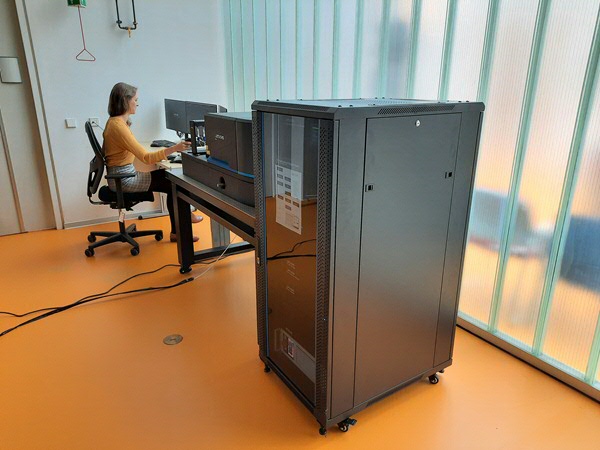Top of the range C-trap optical tweezers setup installed
A new LUMICKS C-trap optical tweezers setup has recently been installed in the Groningen Biomolecular Sciences and Biotechnology Institute (GBB). This advanced device is one of only around 40 of such instruments in the world. It is intended for experimental research on protein folding and stability.
The instrument is a top-of-the-range single molecule optical tweezers setup with three-colour fluorescence, microfluidics and temperature control. Dr. Katarzyna Tych will use it to build on the understanding of how different protein molecules function by observing their movements in real-time. Her research has been focused on chaperone proteins, which are important in maintaining the correctly folded and therefore functional structures of other proteins. Dr. Tych plans to extend her repertoire to include proteins which have been studied by other groups within the GBB, including transmembrane transporters, and to develop new capabilities for the single molecule optical tweezers setup.

More news
-
14 January 2026
What the smell of the sea does to the clouds above Antarctica
